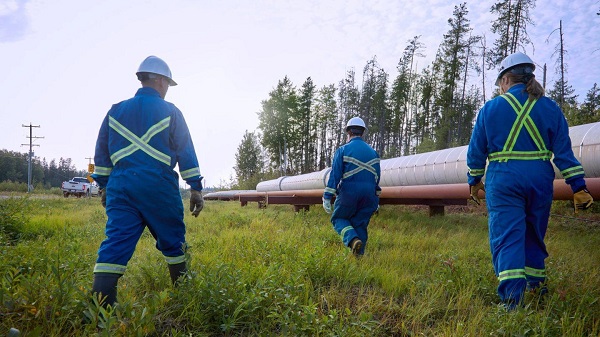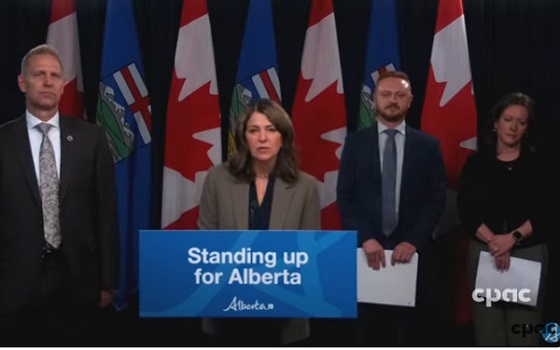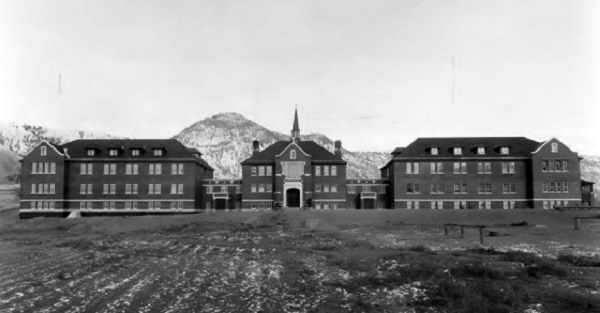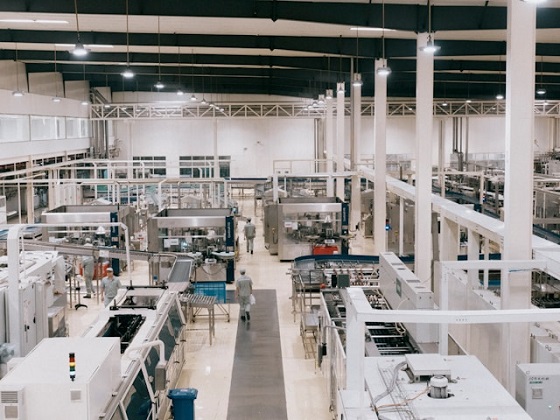Alberta
50 of 67 new COVID cases are in Calgary. Alberta COVID-19 update for March 26

From the Province of Alberta
Update 13: COVID-19 pandemic in Alberta (March 26 at 4:30 p.m.)
Sixty-seven additional cases of COVID-19 have been confirmed, bringing the total number of cases in the province to 486.
Latest updates
- Cases have been identified in all zones across the province:
- 300 cases in the Calgary zone
- 111 cases in the Edmonton zone
- 26 cases in the North zone
- 37 cases in the Central zone
- 12 cases in the South zone
- Of these cases, 21 are currently hospitalized, including 10 admitted to intensive care units (ICU).
- In total, there have been 28 hospitalizations, with 11 admissions to an ICU.
- Two deaths have been reported.
- Up to 34 of the 486 cases may be due to community transmission.
- A COVID-19 outbreak was confirmed March 24 at the Nelson Home, a Calgary group home for persons with developmental disabilities. Two care workers and a resident have tested positive for COVID-19, and two other residents have been tested with no results available yet. All individuals are self-isolating.
- To date, 17 cases have been identified in staff and residents of continuing care facilities, including 14 in McKenzie Towne Long Term Care, one case in Rosedale on the Park and two at Shepherd’s Care Kensington Village.
- There are 24 new confirmed recovered cases, bringing the total to 27.
- Aggregate data, showing cases by age range and zone, as well as by local geographical areas, is available online at alberta.ca/covid19statistics.
- All Albertans need to work together to help prevent the spread and overcome COVID-19.
Mental health supports
Alberta Health Services (AHS) has boosted its service to help Albertans should they need to speak with someone about mental health concerns.
If Albertans call the Mental Health Help Line at 1-877-303-2642 or the Addiction Help Line at 1-866-332-2323 between 7 a.m. and 11 p.m., seven days a week, they will be connected directly to a dedicated team of AHS addiction and mental health staff.
This change will support 811 operators to focus on COVID-19 calls during the day and improve wait times for others needing telephone advice. Calls placed from 11 p.m. to 7 a.m. will continue to be routed through 811.
Pausing some health construction projects and non-essential service contracts
In order to protect patients, families and staff providing key services inside health-care facilities, AHS has informed some contractors and vendors that provide non-essential services at some health facilities that their projects will be temporarily paused.
These include non-essential delivery services and facility maintenance, such as flooring replacement, departmental renovations or lighting retrofit projects.
Alberta Infrastructure is also working with AHS to ensure that construction projects being done inside health facilities do not impact the operations of the facility.
As each project is reviewed and assessed, Infrastructure will provide notice to affected contractors if any projects are deferred.
Emergency isolation supports
Emergency isolation supports are available for Albertans who are self-isolating or who are the sole caregivers for someone in self-isolation, and have no other source of income. Applicants can view eligibility criteria and apply at alberta.ca. To carefully manage the flow of applications, we are periodically closing access to MADI and the Emergency Isolation Support. We will provide daily updates about system availability.
Access to justice
Provincial Court of Alberta’s case management offices are closing and the Court of Queen’s Bench has updated processes.
Effective March 27, the Provincial Court of Alberta will close all of its case management offices. More information: https://albertacourts.ca/pc/resources/announcements/closure-of-case-management-offices-(cmo)
The Court of Queen’s Bench will allow remote commissioning of affidavits in certain situations. More information: https://www.albertacourts.ca/qb/resources/announcements/npp-remote-commissioning-of-affidavits.
The Court of Queen’s Bench has updates regarding modified hearings, processes for criminal, civil and family matters and rescheduled hearings. More information: https://www.albertacourts.ca/qb/resources/announcements/covid-19-amendments-to-master-order-2.
Food supply
Despite higher retail demand, Alberta’s food supply remains secure. Government is in regular contact with other levels of government, producers, distributors, retailers and processors to ensure it stays that way. We are working with food banks and Indigenous communities to understand their needs and ensure everyone has access to the food supplies they need.
Medical evaluation for drivers’ licences
Alberta Transportation has extended the timeline to 90 days for most drivers requiring a medical evaluation to complete their medical form when applying for or renewing their licence. This will reduce the current strain on the health-care system. Medically high-risk drivers will still be required to present their medical evaluation at the time of their application or renewal.
Offers of help
The Alberta Emergency Management Agency Unsolicited Offers Program has been set up in response to growing offers of generosity from individuals and organizations to help with the challenges many Albertans are facing due to the COVID-19 pandemic. Those wanting to help can go to alberta.ca/COVID19offersprogram for more information.
Quick facts
- The most important measures that Albertans can take to prevent respiratory illnesses, including COVID-19, is to practise good hygiene.
- This includes cleaning your hands regularly for at least 20 seconds, avoiding touching your face, coughing or sneezing into your elbow or sleeve, disposing of tissues appropriately, and staying home and away from others if you are sick.
- Anyone who has health concerns or is experiencing symptoms of COVID-19 should complete an online COVID-19 self-assessment.
- For recommendations on protecting yourself and your community, visit alberta.ca/COVID19.
You are NOT alone! Text4Hope aims to help Albertans shoot down the Covid-19 Blues
Alberta
‘Existing oil sands projects deliver some of the lowest-breakeven oil in North America’

From the Canadian Energy Centre
By Will Gibson
Alberta oil sands projects poised to grow on lower costs, strong reserves
As geopolitical uncertainty ripples through global energy markets, a new report says Alberta’s oil sands sector is positioned to grow thanks to its lower costs.
Enverus Intelligence Research’s annual Oil Sands Play Fundamentals forecasts producers will boost output by 400,000 barrels per day (bbls/d) by the end of this decade through expansions of current operations.
“Existing oil sands projects deliver some of the lowest-breakeven oil in North America at WTI prices lower than $50 U.S. dollars,” said Trevor Rix, a director with the Calgary-based research firm, a subsidiary of Enverus which is headquartered in Texas with operations in Europe and Asia.
Alberta’s oil sands currently produce about 3.4 million bbls/d. Individual companies have disclosed combined proven reserves of about 30 billion barrels, or more than 20 years of current production.
A recent sector-wide reserves analysis by McDaniel & Associates found the oil sands holds about 167 billion barrels of reserves, compared to about 20 billion barrels in Texas.
While trade tensions and sustained oil price declines may marginally slow oil sands growth in the short term, most projects have already had significant capital invested and can withstand some volatility.
“While it takes a large amount of out-of-pocket capital to start an oil sands operation, they are very cost effective after that initial investment,” said veteran S&P Global analyst Kevin Birn.
“Optimization,” where companies tweak existing operations for more efficient output, has dominated oil sands growth for the past eight years, he said. These efforts have also resulted in lower cost structures.
“That’s largely shielded the oil sands from some of the inflationary costs we’ve seen in other upstream production,” Birn said.
Added pipeline capacity through expansion of the Trans Mountain system and Enbridge’s Mainline have added an incentive to expand production, Rix said.
The increased production will also spur growth in regions of western Canada, including the Montney and Duvernay, which Enverus analysts previously highlighted as increasingly crucial to meet rising worldwide energy demand.
“Increased oil sands production will see demand increase for condensate, which is used as diluent to ship bitumen by pipeline, which has positive implications for growth in drilling in liquids-rich regions such as the Montney and Duvernay,” Rix said.
Alberta
It’s On! Alberta Challenging Liberals Unconstitutional and Destructive Net-Zero Legislation

“If Ottawa had it’s way Albertans would be left to freeze in the dark”
The ineffective federal net-zero electricity regulations will not reduce emissions or benefit Albertans but will increase costs and lead to supply shortages.
The risk of power outages during a hot summer or the depths of harsh winter cold snaps, are not unrealistic outcomes if these regulations are implemented. According to the Alberta Electric System Operator’s analysis, the regulations in question would make Alberta’s electricity system more than 100 times less reliable than the province’s supply adequacy standard. Albertans expect their electricity to remain affordable and reliable, but implementation of these regulations could increase costs by a staggering 35 per cent.
Canada’s constitution is clear. Provinces have exclusive jurisdiction over the development, conservation and management of sites and facilities in the province for the generation and production of electrical energy. That is why Alberta’s government is referring the constitutionality of the federal government’s recent net-zero electricity regulations to the Court of Appeal of Alberta.
“The federal government refused to work collaboratively or listen to Canadians while developing these regulations. The results are ineffective, unachievable and irresponsible, and place Albertans’ livelihoods – and more importantly, lives – at significant risk. Our government will not accept unconstitutional net-zero regulations that leave Albertans vulnerable to blackouts in the middle of summer and winter when they need electricity the most.”
“The introduction of the Clean Electricity Regulations in Alberta by the federal government is another example of dangerous federal overreach. These regulations will create unpredictable power outages in the months when Albertans need reliable energy the most. They will also cause power prices to soar in Alberta, which will hit our vulnerable the hardest.”
Finalized in December 2024, the federal electricity regulations impose strict carbon limits on fossil fuel power, in an attempt to force a net-zero grid, an unachievable target given current technology and infrastructure. The reliance on unproven technologies makes it almost impossible to operate natural gas plants without costly upgrades, threatening investment, grid reliability, and Alberta’s energy security.
“Ottawa’s electricity regulations will leave Albertans in the dark. They aren’t about reducing emissions – they are unconstitutional, ideological activist policies based on standards that can’t be met and technology that doesn’t exist. It will drive away investment and punish businesses, provinces and families for using natural gas for reliable, dispatchable power. We will not put families at risk from safety and affordability impacts – rationing power during the coldest days of the year – and we will continue to stand up for Albertans.”
“Albertans depend on electricity to provide for their families, power their businesses and pursue their dreams. The federal government’s Clean Electricity Regulations threaten both the affordability and reliability of our power grid, and we will not stand by as these regulations put the well-being of Albertans at risk.”
Related information
- Conference Board of Canada socio-economic Impacts of Canada’s 2030 Emissions Reduction Plan – (April 2025)
- Alberta Electric System Operator’s position on Canadian Energy Regulations
-

 Business2 days ago
Business2 days agoTrump’s bizarre 51st state comments and implied support for Carney were simply a ploy to blow up trilateral trade pact
-

 Frontier Centre for Public Policy2 days ago
Frontier Centre for Public Policy2 days agoTrust but verify: Why COVID-19 And Kamloops Claims Demand Scientific Scrutiny
-

 Alberta1 day ago
Alberta1 day agoAlberta’s future in Canada depends on Carney’s greatest fear: Trump or Climate Change
-

 Business2 days ago
Business2 days agoNew federal government plans to run larger deficits and borrow more money than predecessor’s plan
-

 Business2 days ago
Business2 days agoScott Bessent says U.S., Ukraine “ready to sign” rare earths deal
-

 International2 days ago
International2 days agoJavier Millei declassifies 1850+ files on Nazi leaders in Argentina
-

 Business2 days ago
Business2 days agoChina’s economy takes a hit as factories experience sharp decline in orders following Trump tariffs
-

 COVID-192 days ago
COVID-192 days agoStudy finds Pfizer COVID vaccine poses 37% greater mortality risk than Moderna







